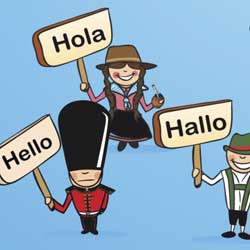Towards a common language infrastructure
Access to state-of-the-art methods and advanced courses in advanced common language resources for researchers has been lacking in Europe. The EU-funded 'Common language resources and their applications' (CLARA)(opens in new window) project worked to turn things around. Doing so involved creating evolutionary data-intensive language models by integrating approaches across boundaries of country and language. Also on the agenda was founding a pan-European infrastructure for language courses. Twenty researches were trained locally on the job and through training programmes. A unique interdisciplinary approach was employed based on linguistics and humanities and crossing over to the sciences and statistics. CLARA achieved its main goals, which were many, and did so throughout prestigious universities across the EU. Some of these achievements include machine learning systems to speed up multimedia annotation, improved searching in video dialogues, and a new method for the classification of semantic relations. Ten international thematic training events were planned and made available to external researchers and participating institutions in other countries. Results can be applied for promoting communication with the use of natural language in the digital age. They also allow the use of multilingual technologies services to help bring people together through personal and business communication.



